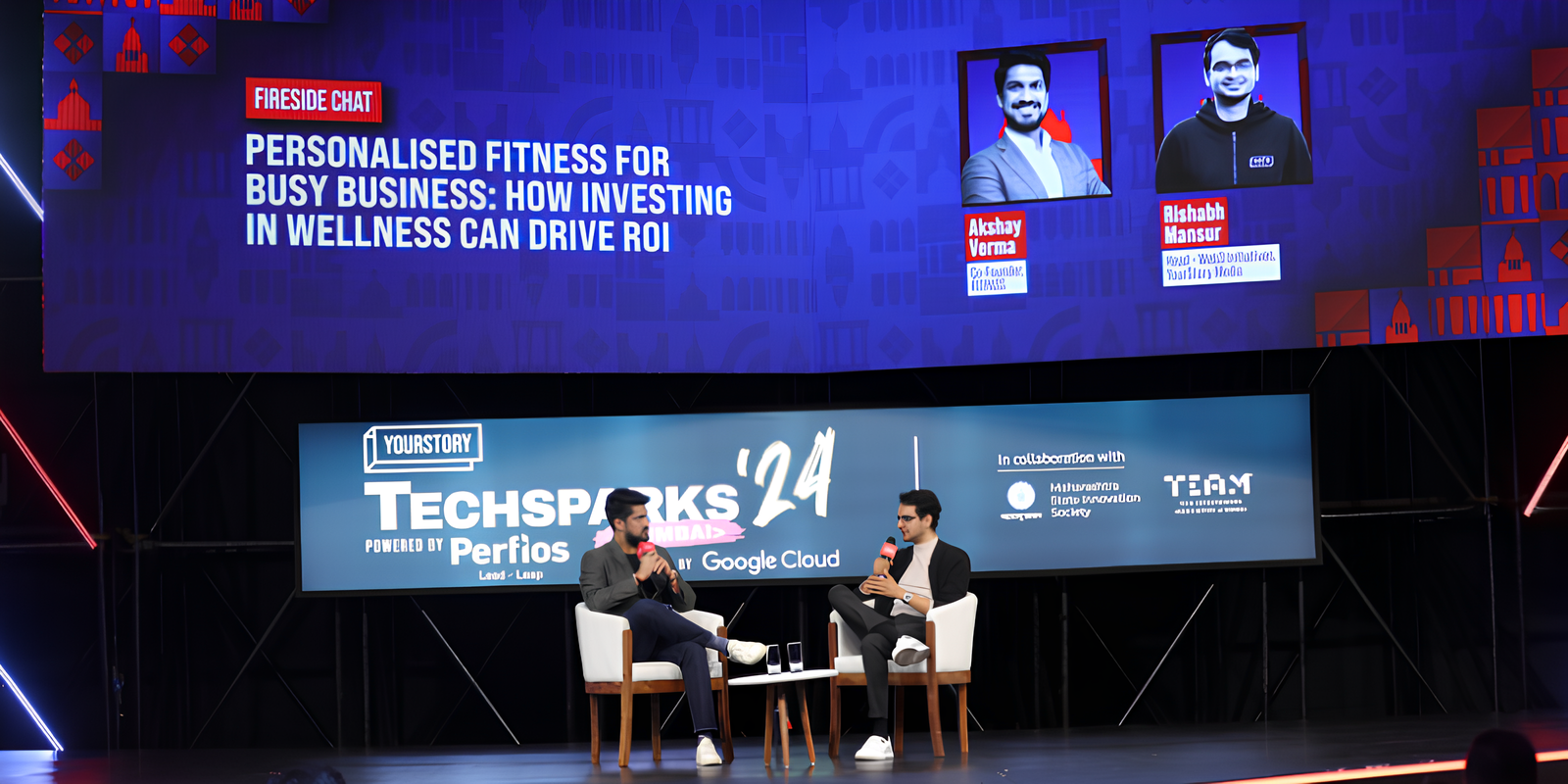
Imagine this: you’re glued to your office chair all day, and working out feels like a chore. But deep down, you know a sedentary lifestyle is a recipe for disaster. This is the reality for many, and Akshay Verma, Co-founder of FITPASS, is on a mission to change that.
Verma recently participated in a fireside chat at TechSparks Mumbai, discussing the evolving fitness and wellness landscape. He highlighted the dangers of a sedentary lifestyle, the importance of personalisation in fitness, and the increasing role of AI in achieving optimal health.
Verma began by highlighting the dangers of a sedentary lifestyle. He pointed out that sitting for extended periods has become a significant health concern, leading to preventable diseases like diabetes, hypertension, and more. He emphasised that being proactive rather than reactive, taking charge of your health and fitness is no longer optional; it’s essential for a long and healthy life.
“Sitting is the new smoking,” Verma declared, highlighting a now-familiar tagline used by FITPASS to raise awareness. “[We’re] informing everybody of a fact that they already know — that sedentary lifestyle and inactivity lead to several difficulties in our life as we grow older and become more mature, preventable lifestyle diseases.” He added, “Regardless of our aspirations to amass wealth and success, it’s essential to prioritise maintaining a healthy body and mind. After all, the true enjoyment of life, family, and the legacy we seek to build is intricately linked to our overall well-being.”
Why “one-size-fits-all” doesn’t work in fitness
Traditional fitness approaches often fail because they offer generic plans that don’t consider individual needs and preferences.
FITPASS takes a different approach. They recognise that “one-size-fits-all” solutions don’t work in fitness. The platform provides a personalised experience, allowing users to choose from a variety of options, including gyms, fitness classes, and even at-home workouts.
Verma explained the core philosophy behind FITPASS: “Wellness is a journey that everybody does on their own terms. That is the core of how FITPASS is built, and personalisation is an outcome of respecting the fact that everybody has their individual journey.”
<div class="externalHtml embed active" contenteditable="false" data-val="” align=”center”>
The Power of AI: Personalised workouts and beyond
FITPASS leverages Artificial Intelligence (AI) to take personalisation a step further. The AI tailors recommendations and workout plans based on individual needs and progress. This ensures users get the most out of their fitness journey, avoiding plateaus and injuries.
Verma acknowledges that AI in fitness coaching was initially met with scepticism when FITPASS launched it in 2018. Beyond suggesting workouts, AI also plays a crucial role in personalising fitness plans. It is crucial to standardise fitness routines and ensure proper form to prevent injuries. Additionally, FITPASS uses AI to analyse user data and personalise the fitness experience.
Verma elaborated on the role of AI in their fitness coaching. “Your body can only move in 130 different ways; your neck can only rotate, go up and down, go left and right, and your hands and shoulders only have limited movement. So how these 130 body movements are combined is the intelligence of how they react with your body, what gives you most results, what increases your functional ability, your strength, your conditioning is how you combine these 130 different movements.”
FITPASS has empowered users to embark on their wellness journeys with confidence and efficacy by harnessing AI algorithms to analyse movement patterns and optimise workout regimens.
Employee wellness: A win-win for businesses
The conversation then shifted to the impact of fitness on businesses. Verma cited a Harvard Business Review study that illustrates how every dollar invested in employee fitness yields a remarkable six dollars in tangible savings for the company. These programmes can lead to reduced absenteeism, increased productivity, lower healthcare expenditures, and improved employee retention. All of these factors contribute to a healthier bottom line for businesses.
Verma referenced a specific study: “Harvard Business Review did a multi-year study to see how employer investment in fitness and wellness programmes can calculate the ROI. $1 invested resulted in a $3.27 reduction in cost related to absenteeism and increased productivity.”
Verma emphasised the importance of a healthy workforce for India’s economic growth. He stressed that a fit population is essential for achieving a $5 trillion economy. Companies are recognising this and are starting to view fitness and wellness as a strategic investment, not just a perk for employees.
The future of fitness is personalised, data-driven, and accessible
Verma’s fireside chat offered a comprehensive overview into the exciting future of fitness. Personalised programmes powered by AI and data make fitness more accessible and effective for everyone. This benefits individuals and contributes to a healthier and more productive workforce, paving the way for a more robust Indian economy.
FITPASS’ approach to fitness is a refreshing change from the one-size-fits-all model of the past. By leveraging AI and personalisation, they are making fitness and wellness journeys more effective and enjoyable for everyone. This data-driven approach benefits individuals and contributes to a healthier and more productive workforce, which is a win-win for both employees and businesses. As India strives to become a $5 trillion economy, focusing on corporate wellness programmes and a fit population will be crucial for achieving this goal.










